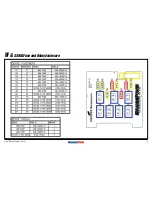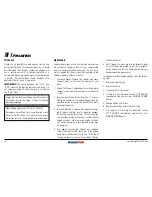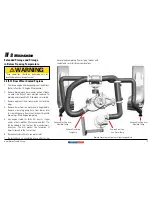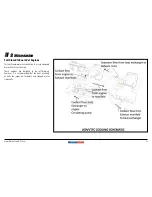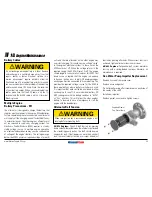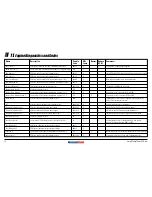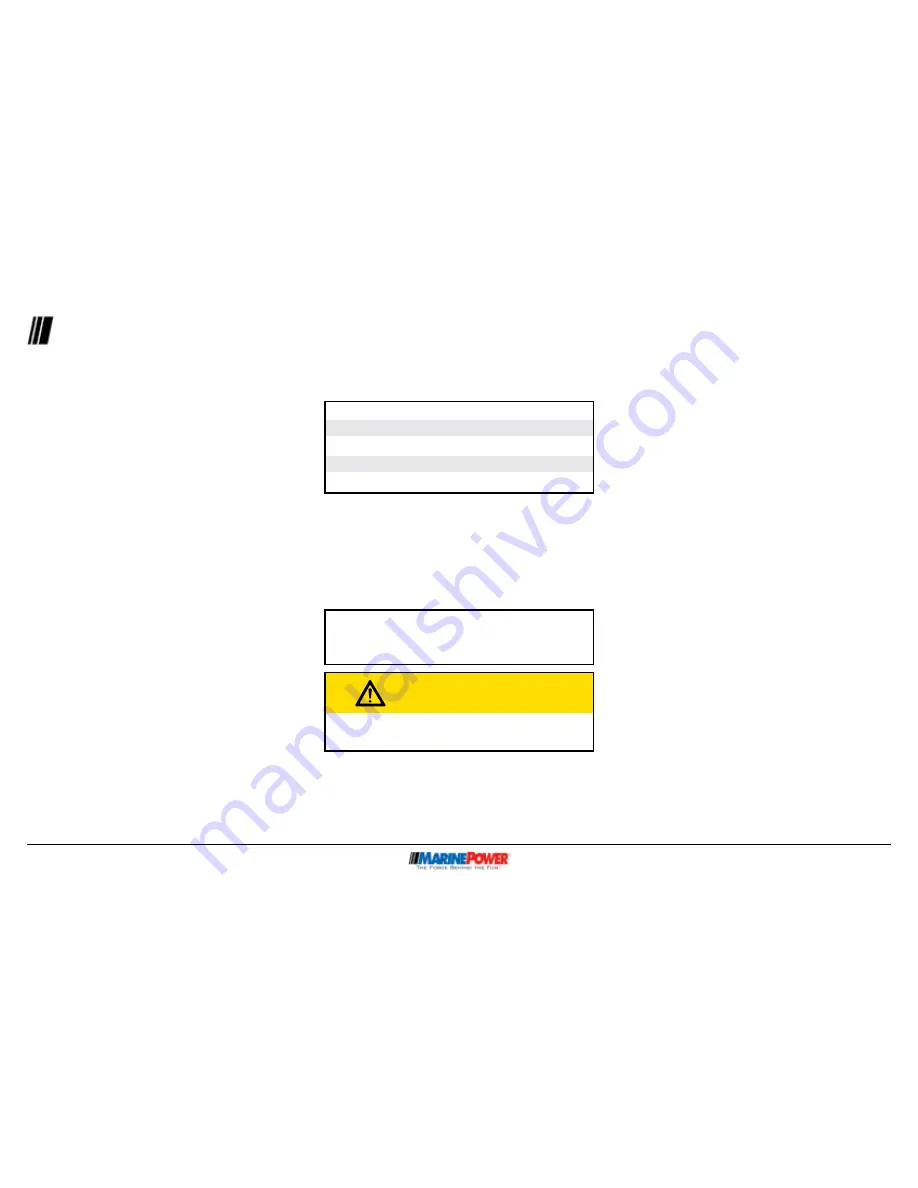
17
www.MarinePowerUSA.com
8.
Engine Operating Instructions
Gasoline Requirements
Marine Power calibrates their engines for use with high
quality lead-free gasoline with a minimum octane rating
of 87. Additionally, Marine Power uses octane scaling
calibrations where applicable. Octane scaling enables
the engine to “learn up” if a higher octane fuel (such
as 92) is purchased. There is a noticeable performance
difference with higher octane fuels. If the boat is used
in heavily loaded conditions (i.e. heavily ballasted
to produce large wakes for surfing or wakeboarding)
Marine Power recommends the use of premium fuel (92
octane minimum).
The use of gasoline containing ethanol is very
prevalent. Marine Power engines are calibrated to
operate on fuel containing up to 10% ethanol (E10). Do
not use fuel with ethanol content higher than 10% (E10).
Ethanol blended fuel acts as a solvent and will absorb
moisture. Excessive moisture can cause lean conditions,
vapor lock and shortened fuel life. The solvent charac-
teristic can cause gum, sludge and other particles to be
loosened up and carried through the fuel system.
Marine Power recommends the use of fuel stabiliz-
er such as Sta-Bil. Fuel stabilizer is recommended for
winter storage and should also be used if you expect to
use less than a full tank of fuel over a 2-3 week period
of time. Follow the label instructions whenever adding
fuel stabilizer to the fuel tank.
Oil Requirements
Marine Power recommends the following:
Marine Power recommends that the engine oil be
changed every 75 hours of engine operation, but no less
frequently than once each calendar year, and that the
engine oil filter be replaced every time the engine oil
is changed.
Starting Engine EFI
DO NOT operate engine without water being
supplied to raw water pump as pump impeller
and engine will be damaged.
Operate the bilge blower for five (5) minutes. If not
equipped with a bilge blower, open engine hatch and
leave open before starting the engine to remove any
explosive vapors from the engine compartment.
Place shift lever in the neutral position.
If this is the initial start on a new engine turn the
ignition (key) switch to the on (run) position (first
detent on key switch) and wait for 10 seconds. Turn the
ignition off and repeat this procedure 2-3 times or until
you hear the fuel pump prime. Then turn the key to the
start (crank) position (2nd detent). It is not necessary
to hold the key switch in this position as the Marine
Power “SMART START” will take over. If the fuel pump
is primed the engine should start within 3-5 seconds.
After the engine starts, idle speed (RPM) will be
controlled by the ECM. The idle RPM will be elevated
following a cold start until the engine warms to its
normal operating temperature.
Check for water flowing through the engine cooling
system. Water should mix with the engine exhaust. In
all cases, your positive indicator is exhaust water flow.
Check the boat’s instrument panel for any service
warnings or alarms.
Check operation of throttle and shift controls.
Check fuel tank fill level before leaving the trailer or
dock.
Engine Break-In/25 Hour Inspection
To insure the maximum life of your Marine Power
Engine, the following engine break-in guidelines are
recommended.
Engine
Brand/Weight
4.3L
Pennzoil 15W-40
5.7L
Pennzoil 15W-40
6.0L
Pennzoil 15W-40
6.2L
Mobil 1 15W-50
DANGER
WARNING
CAUTION
Gasoline vapors are highly explosive under certain
conditions.
Summary of Contents for 4.3 VORTEC MPI
Page 1: ...E N G I N E O W N E R S M A N U A L VERSION 3 ...
Page 15: ...13 www MarinePowerUSA com 6 SSVEC Fuse and Relay Enclosure ...
Page 16: ...14 www MarinePowerUSA com 6 SSVEC Fuse and Relay Enclosure ...
Page 17: ...15 www MarinePowerUSA com 6 SSVEC Fuse and Relay Enclosure ...
Page 55: ......













